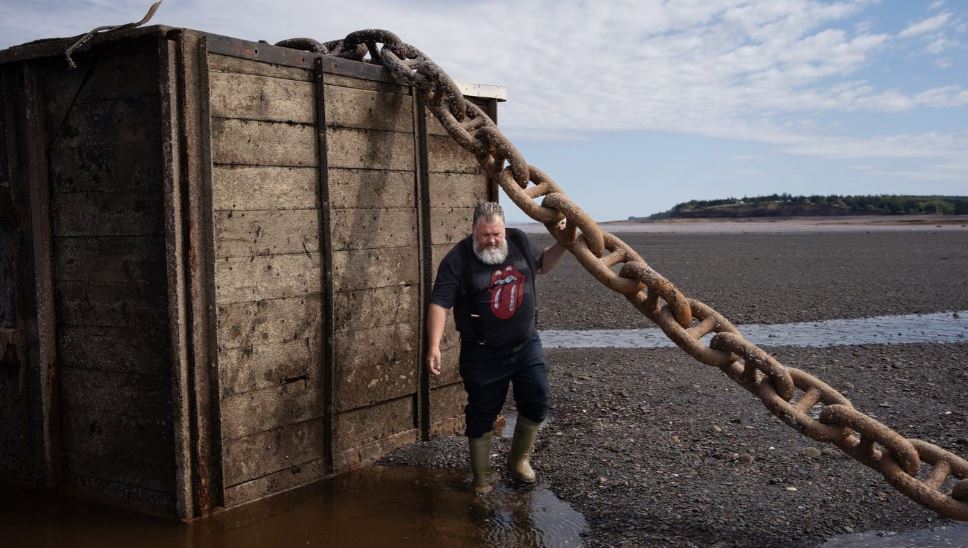Lobster and crab harvesters push back against ‘red list’ meant to help right whales
Posted Sep 20, 2022 08:37:32 PM.
It is disappointing that crustaceans have been added to a so-called “red list” of seafood to avoid as a way of protecting endangered whales, Canadian lobster and crab harvesters said Tuesday.
A recent report by California-based Seafood Watch, a group that monitors global harvesting of fish and crustaceans, said lobster and crab fishing industries are a menace to the endangered North Atlantic right whale because the animals get entangled in fishing gear.
Geoff Irvine, executive director of the Lobster Council of Canada, says the red-listing does not take into account the “significant efforts” being made by Canadian lobster harvesters to avoid entanglements with the whales.
“We have an extensive program where when we see a single whale, we close all the fishing around that whale for a period until the whale leaves,” he said in an interview Tuesday.
“They simply say that whales are still dying so you have to do more. Well, it’s only so much we can do.”
It’s too early to tell if and how much of an effect the red list will have on consumers, he added.
Thousands of businesses use Seafood Watch’s recommendations to inform their seafood-buying decisions, and many have pledged to avoid any items that appear on the red list. Seafood Watch assigns ratings of “best choice,” “good alternative” and “avoid” to more than 2,000 seafood items based on how sustainably they are managed.
The lobster fishing industry has come under scrutiny from Seafood Watch because of the risks to right whales. The North Atlantic right whales number less than 340, and entanglement is one of the two biggest threats they face, along with collisions with ships, scientists with the National Oceanic and Atmospheric Administration and other groups have said. The population of the giant animals, which were decimated during the commercial whaling era generations ago, has fallen in recent years.
Most of the lobster and crab fisheries are in the Gulf of St. Lawrence, which borders several provinces, including Quebec, New Brunswick, Nova Scotia, and Newfoundland and Labrador, said Kim Elmslie, campaign director with Oceana Canada, a non-profit dedicated to ocean conservation.
Whales enter the Gulf of St. Lawrence and surrounding areas in late April just as the commercial snow crab season begins, leading to an overlap, she said.
About 86 per cent of the whales show scarring from an entanglement, while some animals have been ensnared more than once, she said. While some whales are able to shimmy out of the fish gear — and a few are rescued by Fisheries and Oceans Canada — she said others are not so lucky.
“They will just die a very slow and painful death.”
Entanglement in fishing gear is the leading cause of serious injury and death to the North Atlantic right whale in Canadian and U.S. waters, said a news release from the Monterey Bay Aquarium in California, which owns and operates the Seafood Watch program.
Most right whale deaths are unobserved, and the fishing gear is not always found with the whale whose cause of death is determined to be entanglement, it said. As a result, it said, more than 90 per cent of entanglements cannot be linked to a specific gear type. Only 12 per cent of entanglements can be linked to a specific location, the aquarium said.
Jason Spingle, secretary treasurer of the Fish, Food and Allied Workers Union, said Seafood Watch’s report is based on “unfounded information,” adding that the hundreds of fishers he has spoken with have not seen a right whale in their fishing zones.
“We all want to protect right whales, but we’re certainly not seeing them anywhere in our waters.”
Lobster and crab are a multibillion-dollar industry. The Newfoundland and Labrador government said in a news release that the seafood industry remains an integral component of the provincial economy, employing over 17,000 people from more than 400 communities. Last year, the total value of the province’s fishing sector was $1.6 billion, with the most significant portion coming from snow crabs, it said.
The government also pushed back against the report, saying that it is unwarranted and irresponsible for the group to put the snow crab and lobster harvested in the province on a red list.
“The listing is based on the potential impact for North Atlantic right whales to become entangled in fishing gear,” the province said. “However, the judgment fails to recognize that this species is not commonly found in traditional snow crab and lobster fishing grounds frequented by Newfoundland and Labrador harvesters.”
Elmslie said that while right whales have traditionally migrated from the eastern seaboard around Florida to the waters around Cape Cod, Mass., and to the Bay of Fundy, warming waters and a shift in climate have caused them to enter the Gulf of St. Lawrence in huge numbers.
“This is become an issue that has arisen in a very short amount of time,” she said.
“You have very productive important fishing areas, very busy shipping lanes, and then a species that’s susceptible to both entanglements and fishing gear and being struck by vessels. It was kind of a perfect storm that was happening.”
— With files from The Associated Press.
This report by The Canadian Press was first published Sept. 20, 2022.
Hina Alam, The Canadian Press








